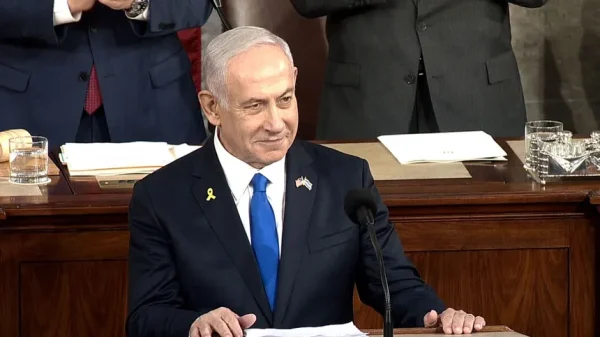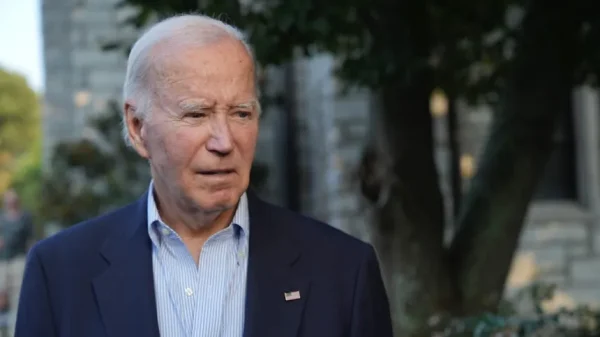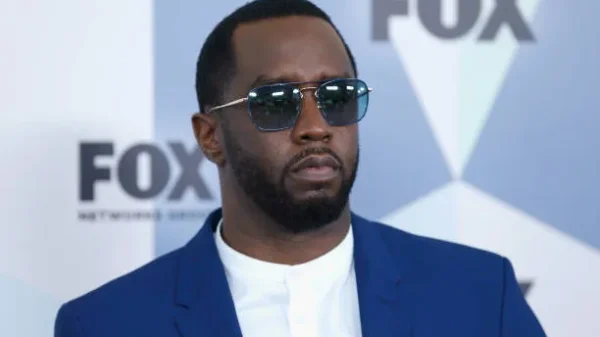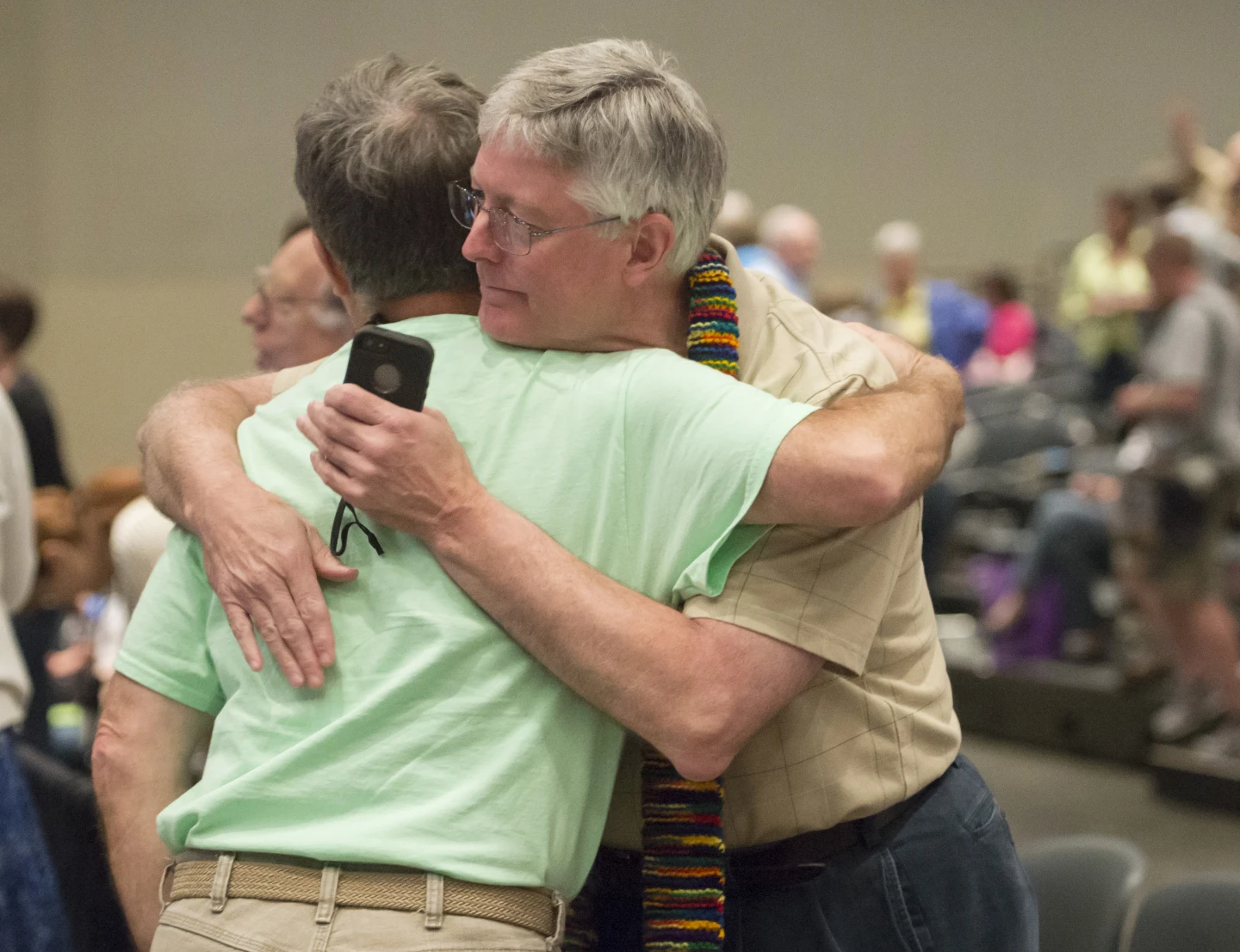In just a few days, United Methodist delegates overturned decades-old bans on gay clergy and same-sex marriages. Reverend Effie McAvoy, reflecting on the rapid changes during a news conference, emphasized that the shift was the result of long-term activism rather than a swift process.
As pastor of Shepherd of the Valley United Methodist Church in Hope, Rhode Island, and a member of the Queer Delegate Caucus at the recent UMC General Conference in Charlotte, McAvoy expressed gratitude for participating in this historic moment.
These reversals signify the conclusion of a fifty-year struggle over LGBTQ inclusion, not only within the United Methodist Church but also across other mainline Protestant denominations in the United States.
These denominations, known for their prominent churches in town squares and rural areas, have traditionally welcomed a broad range of members and held significant cultural influence, with some tracing their roots back to before America gained independence.
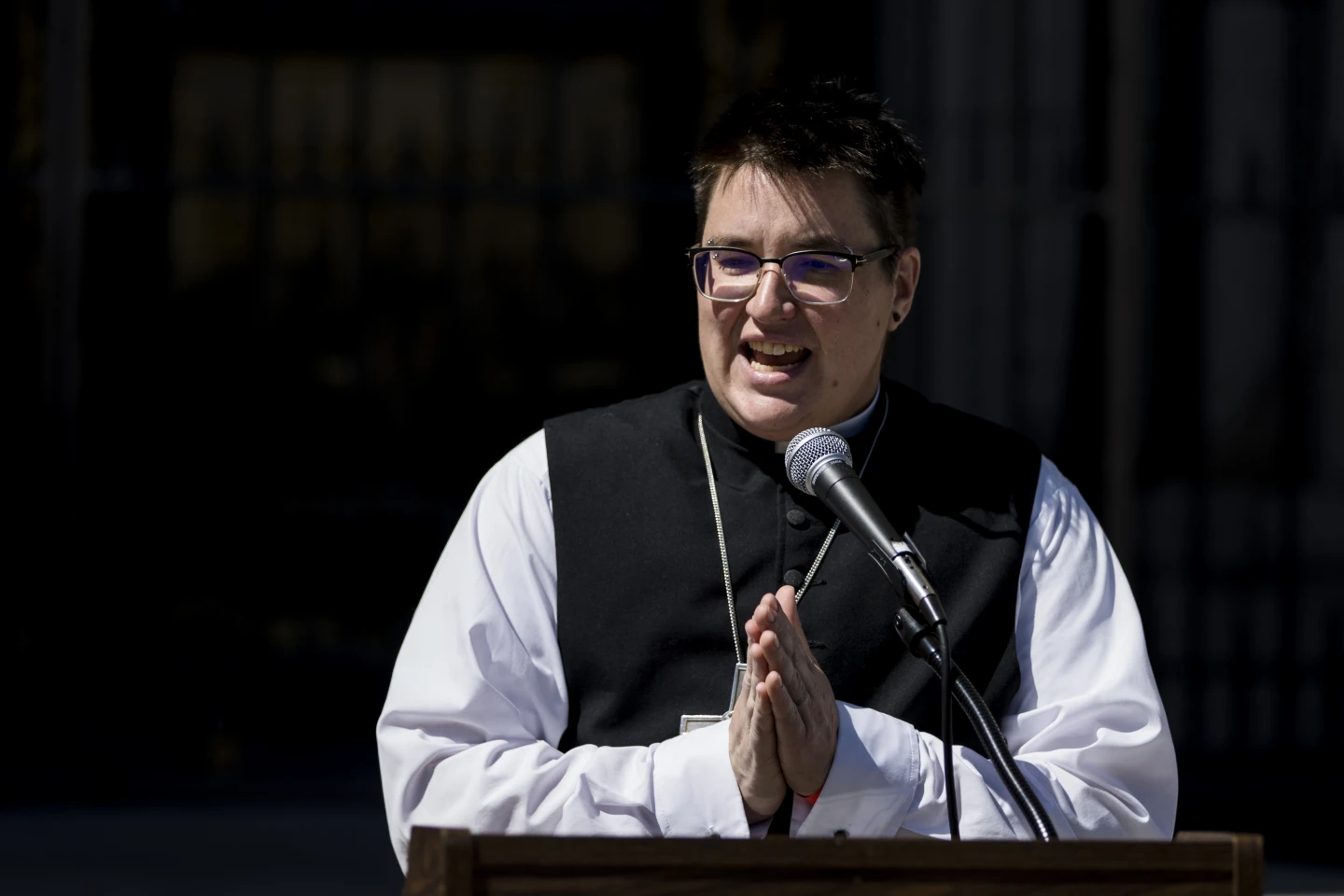
Bishop Megan Rohrer talks to the press (Via Riley Jacks/Shutterstock)
The largest Methodist, Presbyterian, Episcopal, and Lutheran denominations in the country have now all removed barriers to LGBTQ clergy and participation in church rituals. However, these changes come at a time when these denominations are facing long-term declines in membership and societal influence.
While these decisions mark a milestone for mainline Protestants, there may still be ongoing debates and adjustments at individual congregational and regional levels worldwide. Some conservative evangelical churches and colleges, which largely avoided previous conflicts, may continue to wrestle with these issues.
The recent General Conference of the United Methodist Church was relatively calm compared to past gatherings that were characterized by heated debates, protests, political maneuvering, and fervent prayers. Over the years, there have been numerous instances of clergy conducting ordinations and marriages that defied church prohibitions, often leading to trials for charges such as heresy.









